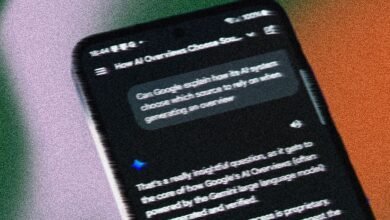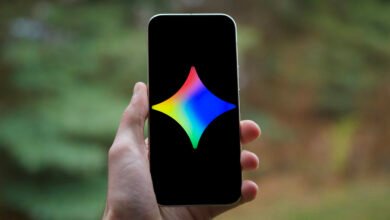AI Overuse at Work Linked to Burnout, Study Reveals

▼ Summary
– AI tool adoption in the workplace boosts productivity but increases burnout, with heavy users 88% more likely to experience it and twice as likely to quit.
– Freelancers report positive career impacts from AI without the mental health downsides seen in full-time employees.
– 90% of surveyed workers view AI as a coworker, with 85% being more polite to AI and 67% trusting it more than human colleagues.
– Business leaders are rapidly adopting AI tools, but workers primarily use them for routine tasks, contrary to promises of freeing time for meaningful work.
– Freelancers demonstrate healthier AI interaction by using it as a learning partner, though their experience may not fully apply to full-time employees.
AI tools in the workplace may boost efficiency but come with an unexpected downside: increased employee burnout. New research reveals that workers who rely heavily on artificial intelligence are significantly more likely to experience exhaustion and consider quitting compared to those who use it sparingly. The findings highlight a growing tension between technological advancement and human well-being in modern work environments.
A recent survey of 2,500 professionals, including executives, full-time employees, and freelancers, found that the most frequent AI users were 88% more likely to report burnout and twice as inclined to leave their jobs. Interestingly, freelancers reported overwhelmingly positive experiences with AI, with 88% stating it enhanced their careers without the psychological strain seen among salaried workers.
The study also uncovered shifting workplace dynamics, with 90% of respondents viewing AI as a coworker rather than just a tool. Many admitted treating AI with more politeness (85%) and trust (67%) than their human colleagues. This evolving relationship raises concerns about diminishing team cohesion. “Workers excelling with AI are losing the psychological safety and connection vital to their job satisfaction,” the report noted, linking this trend to higher burnout rates.
These findings align with earlier research from Harvard Business Review, which found that while generative AI improves productivity, it can also erode employees’ sense of purpose. As businesses rush to integrate AI agents, automated systems handling tasks like strategy and execution, many workers feel increasingly isolated despite promises of greater efficiency.
Tech giants like Microsoft, Google, and Meta have heavily promoted AI as a solution for workplace drudgery, claiming it frees employees for more meaningful work. Yet the data suggests the opposite: full-time workers relying on AI report greater social detachment, while freelancers, who use AI primarily as a learning aid, maintain healthier boundaries.
The study’s authors caution against overgeneralizing, noting that freelancers’ positive experiences may stem from their independent work structures. Still, the results emphasize that workplace well-being hinges on human connection, not just productivity gains. “The tools and teammates we define are evolving,” the report concludes, “but the heart of work remains relationships.”
As companies navigate AI adoption, balancing efficiency with employee satisfaction will be critical. The research serves as a reminder that technology should enhance, not replace, the human elements that make work fulfilling.
For more insights on how AI is reshaping the workplace, subscribe to our daily Tech Today newsletter.
(Source: ZDNET)





